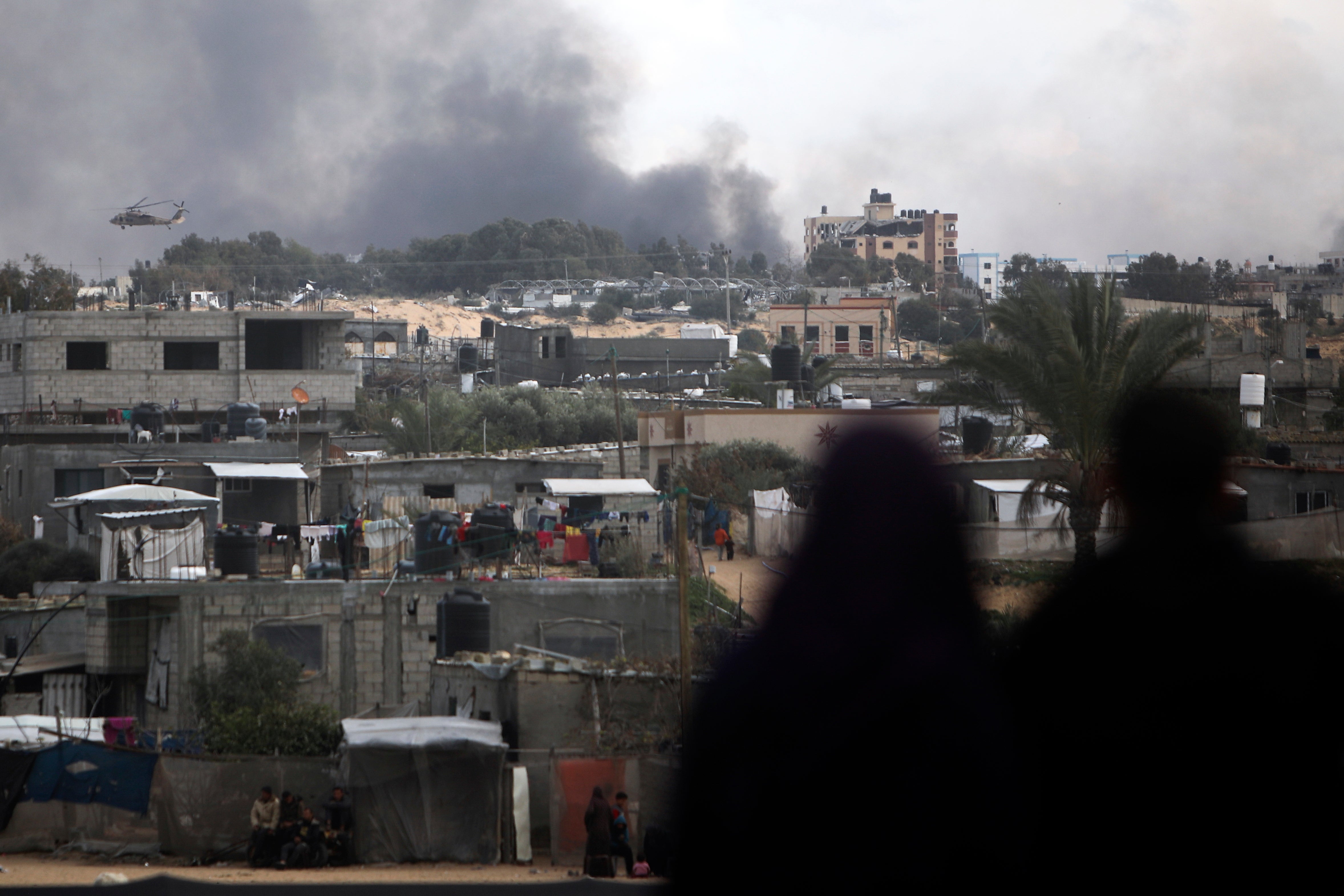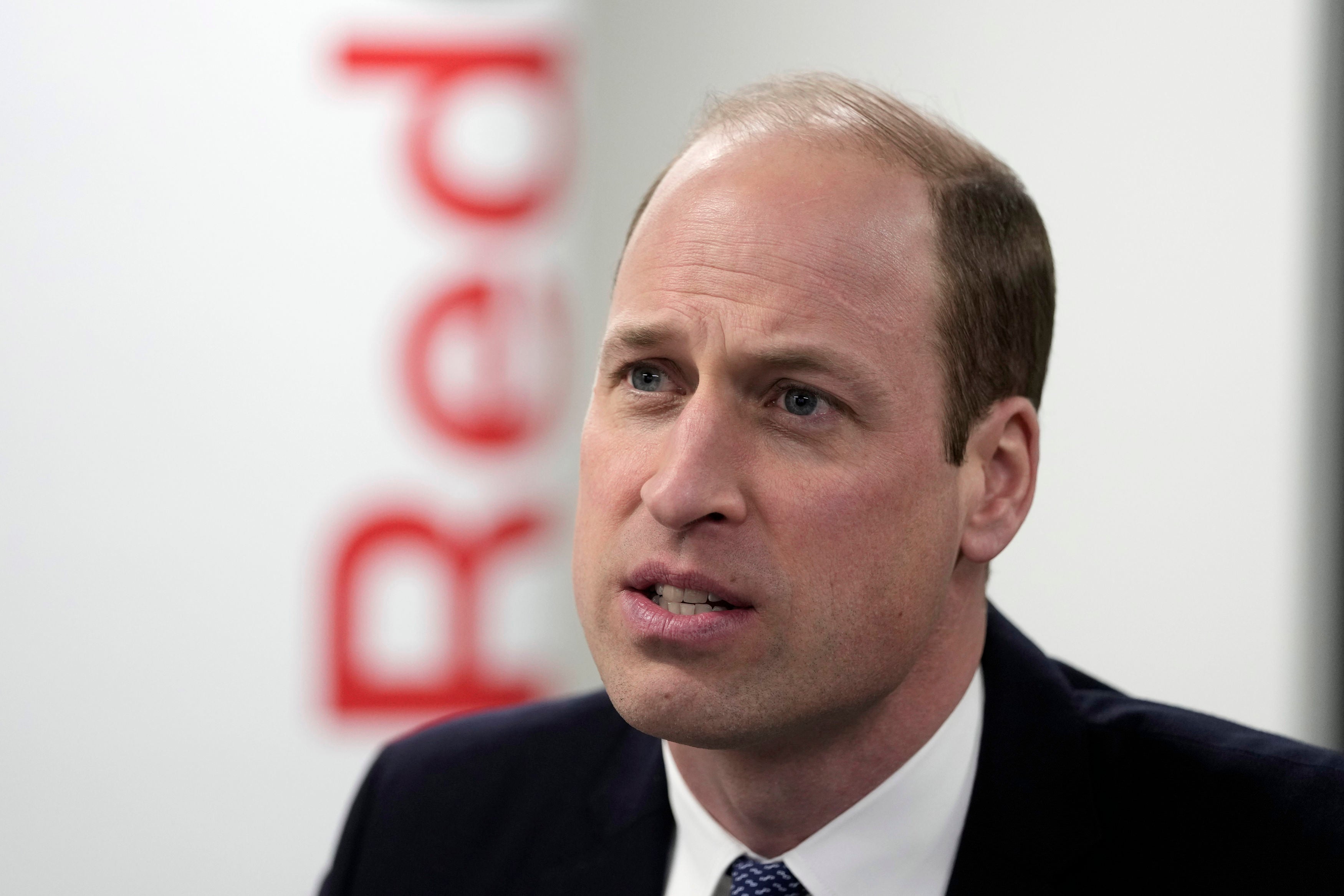An Israeli assault on Gaza’s Rafah will send shockwaves that could hit far closer to home
Bel Trew writes that in recent conversations with officials, experts and diplomats across the Middle East, there is one common warning: if the Rafah offensive goes ahead during Ramadan and no truce is negotiated soon, the world will be on the brink of a much wider war


The war in Gaza, layered over the destabilising shockwaves of Russia’s invasion of Ukraine, has pushed the world to the very brink. The volatility of the Middle East and Red Sea region and the subsequent rising anger at the West are reaching levels possibly not seen since the lead-up to 9/11.
A devastating Israeli ground offensive on Rafah in southern Gaza, which is the last refuge for civilians in the besieged strip, would likely trigger a humanitarian crisis and a death toll of unimaginable dimensions.
Since there is nowhere to go, it may see Palestinian families forced into Egypt, which would violate a decades-old peace treaty with Cairo and, to quote the Norwegian Refugee Council, would be “a serious breach of international law, amounting to an atrocity crime”. At the same time, an offensive would threaten the lives of the remaining 136 hostages still in the hands of Gaza’s militant factions – some of whom may already be dead.
If an assault on Rafah goes ahead, particularly as we enter the holy Islamic month of Ramadan on 10 March and the expected tensions flare, it could trigger a regional war that goes well beyond what global powers like the US can control. Attacks may occur closer to home.
These words of warning are a rough summary of urgent messages related to me by officials, diplomats, negotiators and experts across the Middle East region in both public and private conversations over the last few weeks.
While there is a rising chorus of alarm from world leaders – including on Tuesday from Prince William – over the historic pace of killing in Gaza, the fate of 1.5 million people sheltering in Rafah, and the corresponding rising tensions in Lebanon, Iraq, Syria, Yemen and the Red Sea, there is increasing concern that words are not enough.
Only an immediate humanitarian ceasefire will defuse the situation, save the lives of civilians, and bring the hostages home and the world back from the brink of a multi-country conflict, they tell me. Only a truce will stop the bloodshed in Gaza, where the death toll – 29,000 people in a few months, according to Palestinian health officials in the Hamas-run territory – is breaking records. Israeli strikes across Gaza killed at least 67 Palestinians in the 24 hours into Wednesday morning, medics and Palestinian health officials said.

And the UK, the US and the European Union, as key allies of Israel, are best placed to do something – not just say something – in order to make these things happen before it is too late.
Right now, there is rising anger in the Middle East directed at the US and the UK by proxy, for doing the opposite of this.
Many of the leaders in the Middle East fear this will translate into a surge in increasingly devastating attacks against US and Western interests in the region, as was registered in the lead-up to and aftermath of 9/11. We have already witnessed attacks by Iran-backed militia groups on US positions in Syria, Iraq and Jordan. There have also been attacks by the Yemeni rebel group the Houthis on US- and UK-flagged ships in the Red Sea. Syrian state media reported on Wednesday that several people had been killed in what it said were Israeli airstrikes.
Another concern is that there could be violence even closer to home.
The opinion in this region is that the US and its allies have not applied the pressure they could – such as withholding military aid – and instead have sent confusing signals in their statements.
President Joe Biden has advised against an offensive in Rafah “without an evacuation plan”. But the UN and rights groups on the ground have repeatedly said evacuation is completely impossible given the number of people sheltering in Rafah, the fact that most of them are living in tents and makeshift shelters after fleeing Israel’s bombardment in other areas, and the fact that there is simply nowhere left for people to go.
The US right now is writing a rival draft to an Algerian-proposed UN Security Council resolution demanding an immediate humanitarian ceasefire. The US draft supports a temporary ceasefire in Gaza “as soon as practicable” according to text seen by Reuters. The US has warned against a major ground offensive into Rafah “under the current circumstances”.
These oddly phrased caveats clang given the severity of the crisis right now, the number of civilians killed, and the fact that starvation is looming in Gaza, that children are being operated on without anaesthetic, and that anger is boiling globally.

The Israeli leadership, meanwhile, is defying the world’s warnings over Rafah, and insisting its army will keep going until Hamas is eliminated, as it says this is the only way to protect Israel. Many have questioned this objective, wondering if it is even possible to achieve by brute force – or even, in fact, conducive to keeping Israelis safe. The utter destruction of Gaza will only push more of the population, desperate and alone, into the hands of Hamas, which has leadership and networks abroad.
Meanwhile, the country is becoming increasingly isolated as more and more world leaders express their fear and alarm – as states like South Africa take action at the International Court of Justice, and nations like Ireland and Spain take action at the EU.
Rarely in my line of work covering world conflicts do I end up quoting the monarchy, simply because our paths do not cross: the royals tend to keep out of global politics. But yesterday, the Prince of Wales stepped in, as his father King Charles undergoes treatment for cancer, and made an unprecedented royal interjection. I think the fact he has chosen to speak out is telling of our time, of the gravity of what we are cannonballing into.
He said “too many” had been killed since the 7 October Hamas attacks on southern Israel that triggered the war on Gaza, and that there must be an end to the fighting “as soon as possible”.
“Sometimes, it is only when faced with the sheer scale of human suffering that the importance of permanent peace is brought home,” he said.
“Even in the darkest hour, we must not succumb to the counsel of despair.
“I continue to cling to the hope that a brighter future can be found and I refuse to give up on that.”
Bookmark popover
Removed from bookmarks